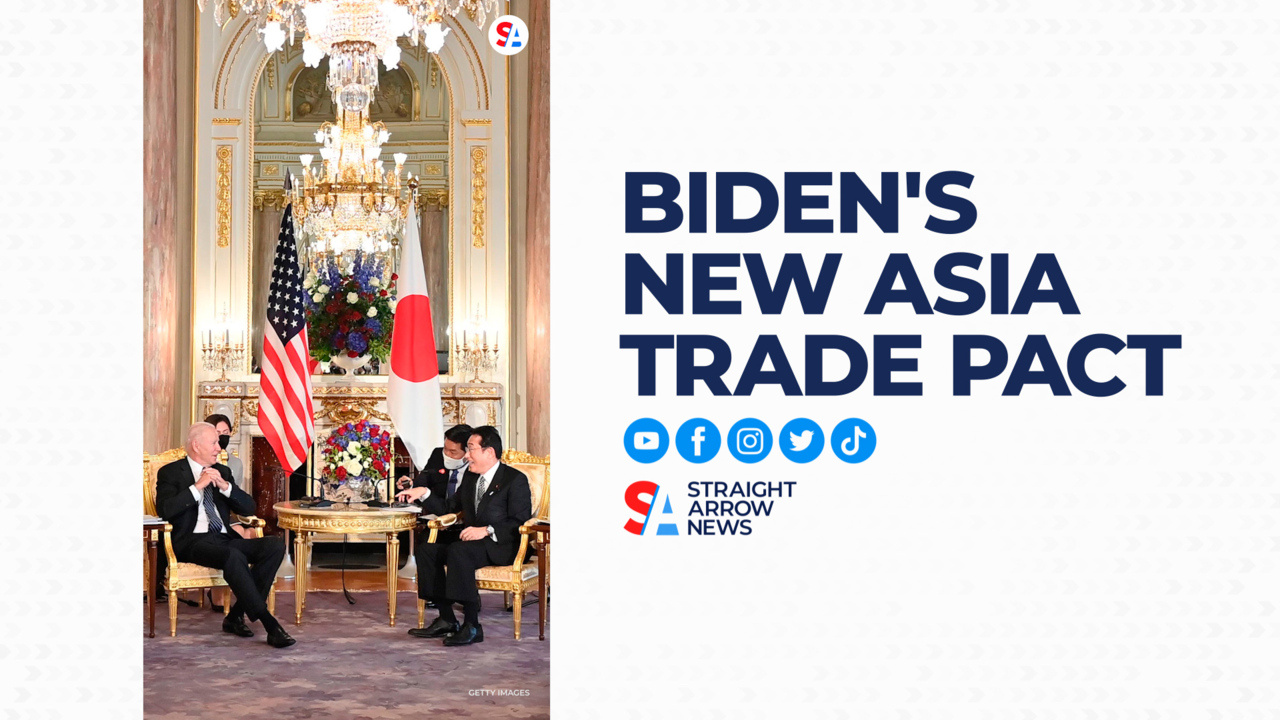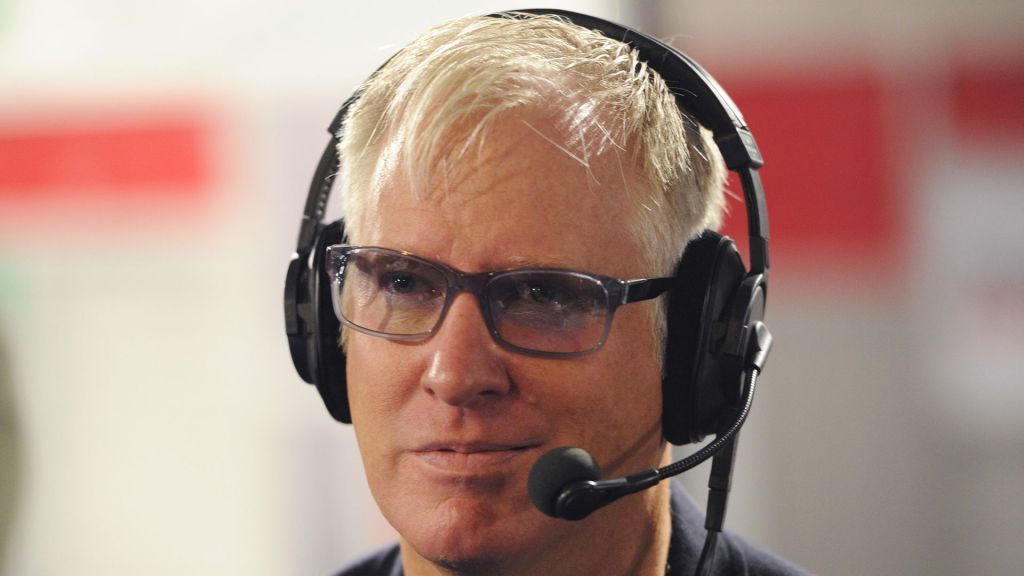
MAHMOUD BENNETT: PRESIDENT BIDEN IS CONTINUING HIS ASIA TOUR WITH A STOP IN TOKYO.
HE’S HIGHLIGHTING A NEW TRADE DEAL BUT HIS COMMENTS ON TAIWAN ARE GETTING MUCH OF THE ATTENTION.
REPORTER: “ARE YOU WILLING TO DEFEND TAIWAN MILITARILY IF IT COMES TO THAT?”
PRESIDENT JOE BIDEN: “YES, THAT’S THE COMMITMENT WE MADE.”
BENNETT: THE WHITE HOUSE SAYS BIDEN’S REMARKS DON’T REFLECT A POLICY SHIFT BUT IT DREW A SHARP RESPONSE FROM CHINA.
BEIJING IS THE CHIEF REASON ECONOMIC TENSIONS ARE HEATING UP.
AND BIDEN’S ADMINISTRATION SAYS THIS NEW TRADE DEAL IS DESIGNED TO SIGNAL OUR DEDICATION TO THE REGION.
13 NATIONS INCLUDING THE U.S. ARE JOINING THE INDO-PACIFIC ECONOMIC FRAMEWORK.
COLLECTIVELY THEY REPRESENT 40% OF THE GLOBAL GDP AND WOULD WORK CLOSELY ON ISSUES LIKE THE SUPPLY CHAIN, DIGITAL TRADE, AND CLEAN ENERGY.
BUT CRITICS SAY THE PACT COMES UP SHORT AND DOESN’T OFFER ENOUGH INCENTIVES TO KEEP THESE COUNTRIES FROM TRADING WITH CHINA.
AS OF RIGHT NOW, THE FRAMEWORK IS LARGELY ASPIRATIONAL
AND MEMBER COUNTRIES WILL ULTIMATELY DECIDE THE PATH FORWARD.






